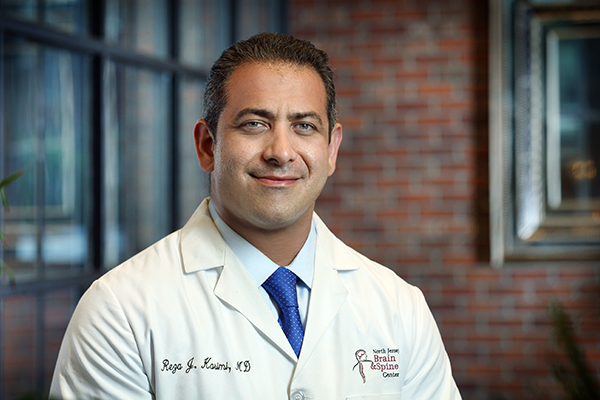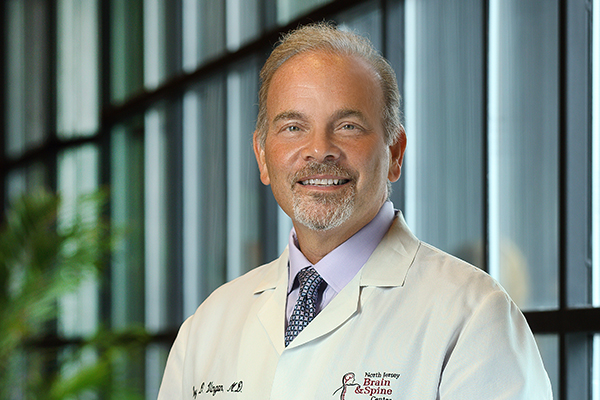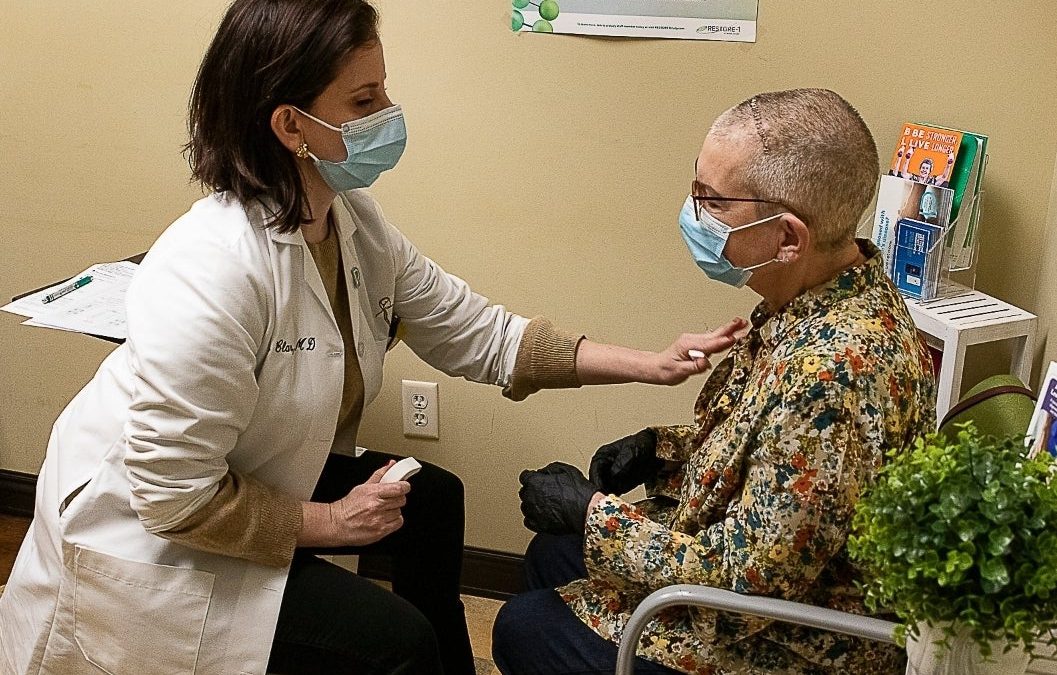Review some of the most commonly asked questions about Lumbar Discectomy Surgery:
What Is Lumbar Discectomy?
Lumbar discectomy is a surgical procedure that is performed to relieve pain, weakness, and numbness caused by a herniated disc in the lower back that is putting pressure on spinal nerves. Herniated discs affect nearly 1–3% of the U.S. population each year, with lumbar discectomy offering a high success rate for those with persistent nerve compression. The neurosurgery specialists at New Jersey Brain and Spine have extensive expertise and will ensure safe, effective treatment and the best possible outcome.
When is a lumbar discectomy recommended?
A discectomy may be helpful for treating pain caused by a herniated disc or complications associated with degenerative disc disease. Surgical treatment for a herniated disc works best to treat pain that radiates down one or both legs and may be recommended after trying physical therapy or medication or if the patient experiences signs of nerve damage, like numbing or weakness. You may be a candidate if you experience:
- Leg pain that worsens with activity (sciatica)
- Numbness or tingling in the lower extremities
- Muscle weakness
- Difficulty walking or standing
Approximately 80–90% of patients experience meaningful pain relief after lumbar discectomy.
How is a lumbar discectomy performed?
A lumbar discectomy is typically performed under general anesthesia and takes about one to two hours to complete. Often, the procedure can be performed with a minimally invasive technique. The surgeon makes a small incision in the lower back and then inserts a thin tube with a camera on the end to view the damaged disc. Specialized instruments are passed through the tube to remove the damaged part of the disc and relieve pressure. Since no cuts are made in the muscles or ligaments, there is minimal discomfort after the procedure.
What is the recovery time for a lumbar discectomy
A lumbar discectomy is typically performed as an outpatient procedure and most patients go home the same day. Typical restrictions immediately following the procedure may include:
- No lifting objects heavier than 5 pounds
- No bending or twisting
- No sitting or lying in one position for long periods of time to avoid stiffness
- No strenuous activity
- No driving the first 2-3 days or while taking pain medication
Most people return to work within 2 weeks; however those who operate heavy machinery or whose jobs require heavy lifting may need more healing time. Physical therapy may be recommended to support recovery and strengthen your back.
What are the risks of lumbar discectomy?
Most lumbar discectomies successfully relieve lower back and leg pain and discomfort; however complications can occur, including:
- Bleeding
- Infection
- Dural tear
- Injury to nearby vessels or nerves
Lumbar discectomy surgery can provide significant relief for people with herniated discs who experience severe pain and disability. At New Jersey Brain and Spine, our specialists are committed to helping you achieve relief and improve quality of life. Contact us to discuss whether this procedure is right for you.
Frequently Asked Questions:
-
How long is the hospital stay after lumbar discectomy?
-
Most patients go home the same day.
-
-
Is lumbar discectomy painful?
- You may experience soreness at the incision site, but most nerve pain subsides quickly after surgery.
-
Can the herniated disc come back?
- Yes, but recurrence rates are low. Maintaining good posture, core strength, and back care habits can help prevent future issues.








